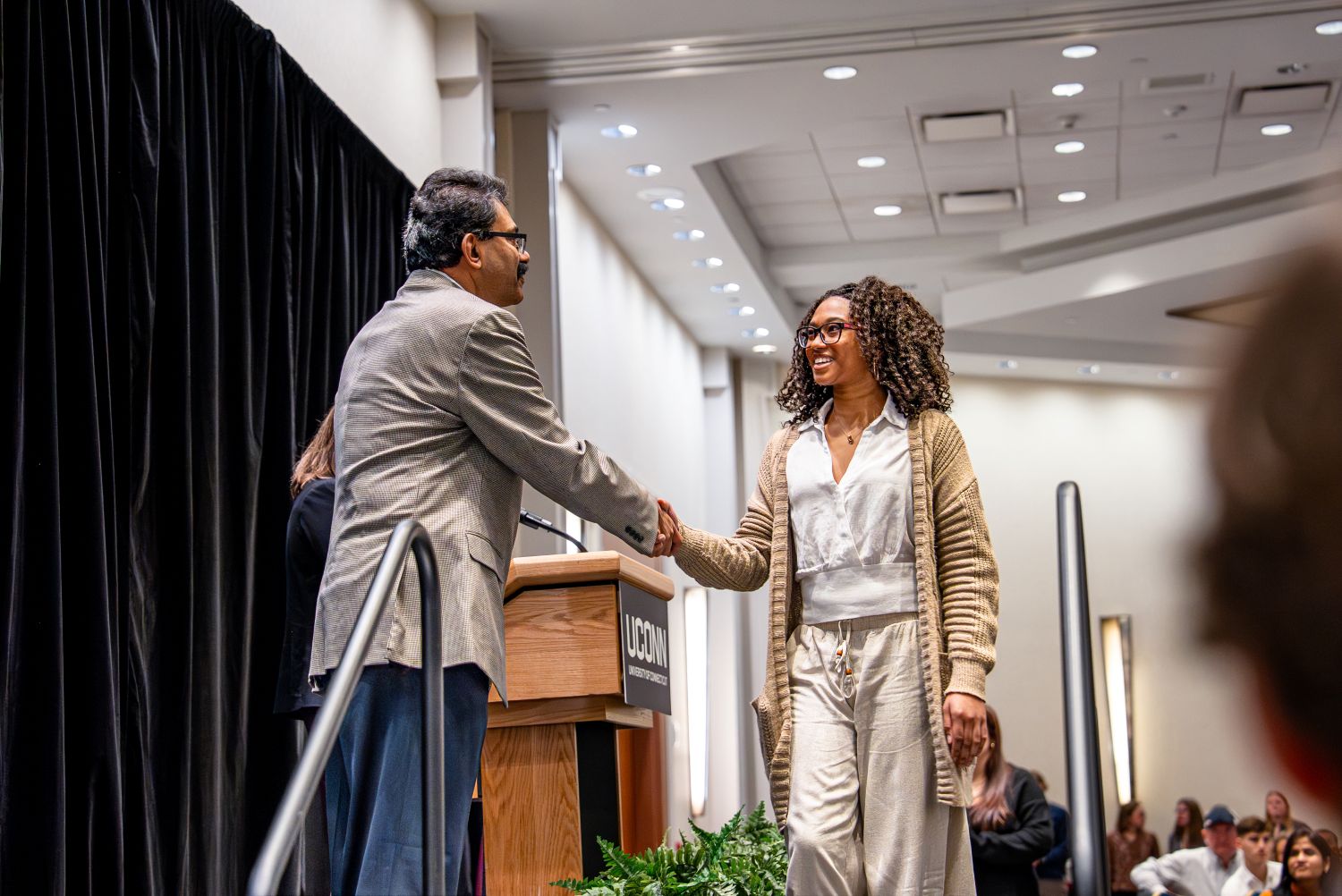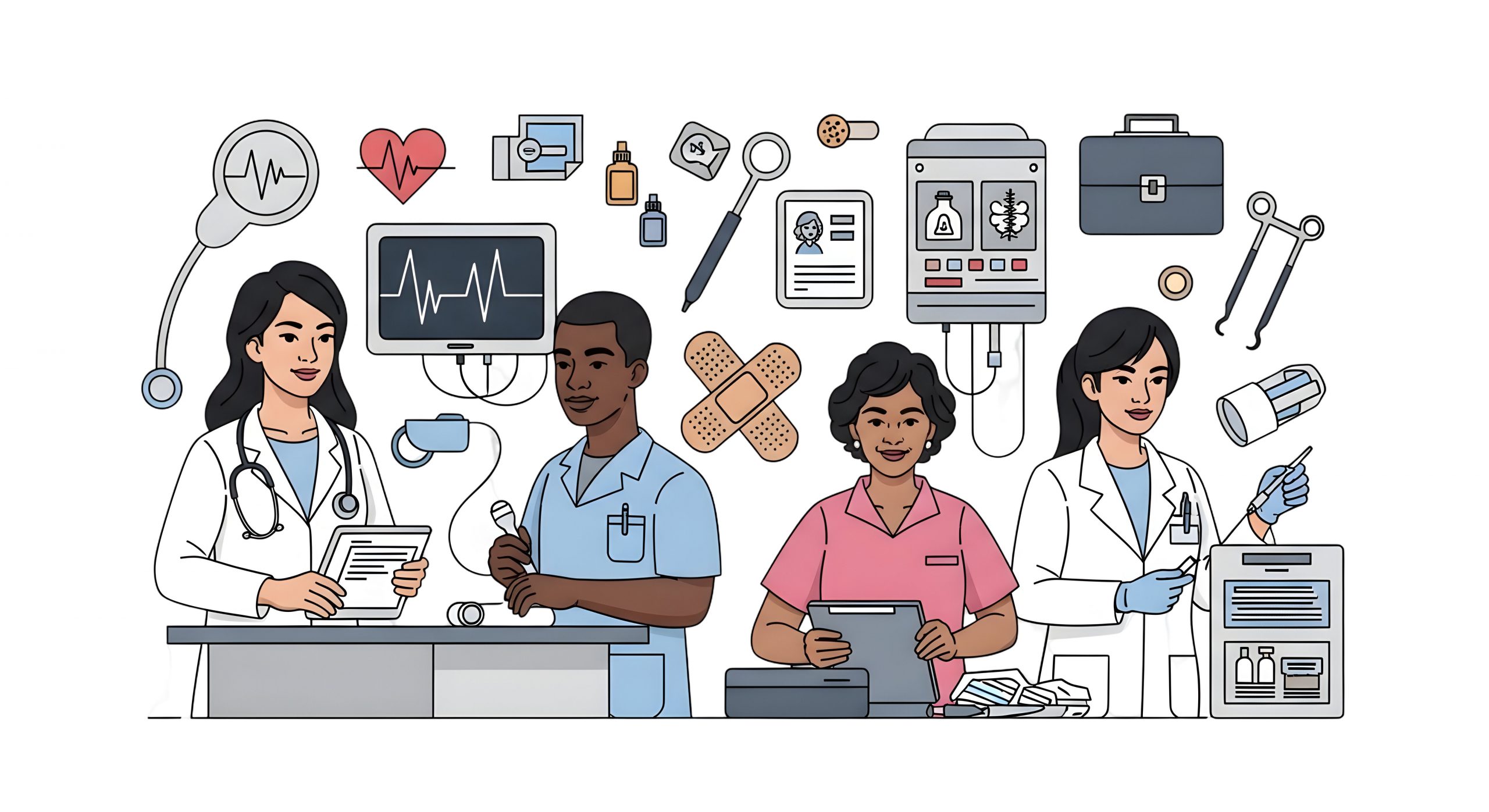Ah-OOG-uh!
The discordant sound of an old-fashioned car horn blares, and 100 or so UConn faculty and staff dining on wraps and chips at round tables morph into a sea of swiveling heads and furrowed brows.
Are we being pranked? Are we in danger? Did we just travel through time?
At the podium David Rettinger — a University of Tulsa psychology professor, co-author of a book about teaching with AI titled “The Opposite of Cheating,” and lunchtime keynote speaker — jerks an arm up and adjusts his smartwatch, exasperated. Someone in the audience cracks that the culprit behind the horn must be artificial intelligence — the theme for this daylong conference in Storrs — but Rettinger owns up to the interruption.
Turns out the sound signified an incoming call from his elderly father, and Rettinger hadn’t figured out how to silence it ahead of time. “Not AI,” he tells the crowd. “Just a dumb person.”
In a way, the scene sums up how many in academia feel about AI: Some unseen force is honking at us urgently, and it’s unclear if we should speed up, swerve, or slam on the brakes. It’s a situation that’s making a lot of highly educated people feel dumb. (I also find it amusing and rather reassuring that the guy who literally wrote the book on AI struggles with basic tech settings, just like me.)
This end-of-school-year event in the Werth Residence Tower is normally called May Day. It’s an annual tradition in which faculty and staff are invited by UConn’s Center for Excellence in Teaching and Learning (CETL) to reflect on lessons learned in and out of the classroom, compare notes, and generally help one another become better all-around researchers and educators. In honor of the special theme, the 2025 iteration has been christened mAI dAI (pronounced “my die,” somewhat ominously).
This year, perhaps more than ever, college educators need help. The rise of widely available artificial intelligence tools, notably ChatGPT and similar large language model (LLM) chatbots, is eliciting a frothy mix of excitement and dread in every industry, education included. Optimists emphasize the technology’s superhuman capabilities — suddenly, everyone has an incredibly powerful assistant for research, analysis, brainstorming, customized learning, and more in their pocket, available 24/7. Meanwhile, teachers everywhere fret that AI makes it easier than ever for students to cheat on traditional schoolwork and sidestep learning entirely.
After working as a reporter and editor for over 20 years, I joined UConn’s journalism department last fall as part of a “cluster hire” of new faculty whose research largely focuses on AI. My duties involve covering AI as a journalistic beat while also experimenting and figuring out when and how to incorporate AI into our coursework. I can’t say how many conversations about AI I’ve had over the past year with colleagues, students, friends, and family, but I’m pretty sure I’m occasionally perceived as the annoying guy who brings up the topic way too often. My wife and kids will vouch for this.



